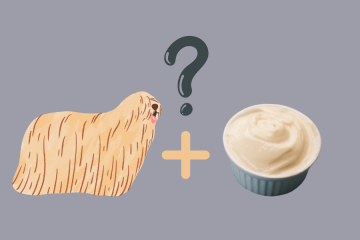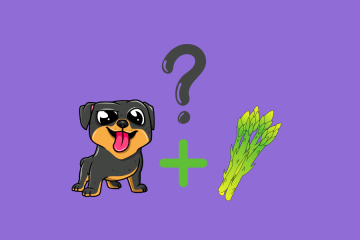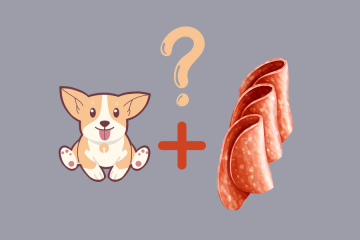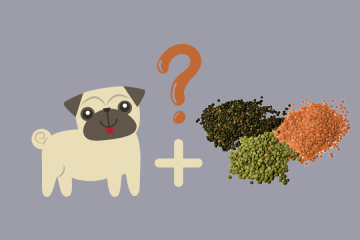Key Takeaways
- In general, yogurt is safe for dogs to eat.
- It contains a variety of beneficial vitamins, minerals and probiotic bacteria, as well as protein and carbohydrates needed for energy.
- There are some potential dangers of feeding your dog yogurt, such as the presence of lactose and other sugars that may trigger digestive problems.
- If you do choose to include it in your pet’s diet, it is best to stick to plain, Greek yogurt and avoid yogurts that contain added sugars or artificial sweeteners.
- Be sure to monitor your pet for any negative reactions, and consult a veterinarian if you have any concerns.
Yogurt is a dairy product that’s made by fermenting milk with cultures of bacteria. It’s typically eaten as a sweet dish for breakfast or dessert, but can easily be turned into a savory snack or main course by adding vegetables, meats, etc. Can dogs eat yogurt, though? Although yogurt can be good for your dog because of its health benefits and nutritional value, you need to be cautious about the lactose content.
Does Yogurt Meet Your Dog’s Nutritional Needs?
Dogs are carnivores, so they have different dietary requirements to humans. One of these differences is that dogs need more protein in their diet than humans do, and they require 9 essential amino acids compared to our 8. Another is that dogs don’t need as many carbohydrates as we do, and their bodies have less of the enzymes needed to digest them.

Luckily for your dog, yogurts have a lot of protein, so they are a viable snack. In addition to this, they are also a rich source of calcium, an essential mineral for your pup that helps them maintain their strong bones and teeth. So, can dogs eat yogurt? After all, it seems like a perfect dog food, right? Well…
Yogurt Is Not Enough
There’s an issue, though… the rich source of calcium and protein is not enough to constitute a good meal. Feeding your dog large amounts of yogurt instead of balanced dog food would certainly result in their undernourishment. Your pet would exceed their daily calorie needs while not getting all the vitamins and minerals they require.
No need to despair, however – you can simply include yogurt into your dog’s diet as a snack! We’ll explain how to do it in a moment.
Benefits of Giving Your Dog Yogurt
In addition to yogurt’s rich protein content, it also contains live cultures called probiotics. Dogs need these bacteria because they aid in digestion and outcompete dangerous bacteria that can be found in food. Probiotics may promote a stronger immune system too, making yogurt even more valuable for dogs.
We shouldn’t forget to mention the presence of carbohydrates essential for your dog’s energy, as well as B-complex vitamins. For those of you interested in acidity, you’ll be happy to know that yogurt has a pH around 4.5 but is alkaline-forming, which makes it safe for consumption by canines.
Dangers of Feeding Your Dog Yogurt
All this goodness can’t exist without a few caveats. Here are some potential disadvantages of dairy products for dogs:
- Dairy products like yogurt are rich in lactose, a sugar compound that dogs’ digestive systems have particular trouble with. Including too much lactose in your pup’s diet may result in an upset stomach and diarrhea. This, of course, applies especially to dogs that are lactose intolerant.
- Too much fructose leads to a marked increase in blood pressures that could be dangerous for your pup’s heart, so stay away from yogurts with added sugars. Some yogurts use sweeteners as substitutes for sugar, e.g., xylitol, which is toxic to dogs and can cause hypoglycemia.
- Yogurt will also not be able to address most of the dietary deficiencies that your dog may have, and can also contain ingredients other than yogurt such as cereal or fruit that could lead to an upset stomach.

The Best Way to Add Yogurt to Your Dog’s Diet
The best way to avoid the risks of yogurt whilst not cutting it out of your pup’s diet is to stick to the right products. If you limit your dog to Greek yogurt, you are also limiting your dog’s lactose intake, as this type of yogurt is particularly low in this sugar.
Greek vs. Regular Yogurt
Regular, plain yogurts can be good for your pup as they have no unhealthy additives. Fruity yogurts often come with a heap of artificial additives and sugars that are no good for your canine’s health.
Plain Greek yogurt isn’t loaded with sugars or sodium either, so it’s a great vitamin-and-protein packed treat for dogs. It’s also better than typical yogurt because much of the lactose is strained out during production.
Summary: Can Dogs Eat Yogurt?
Ultimately, can dogs eat yogurt? Yes, your dog can eat yogurt, but we recommend sticking to those with no additives, such as plain yogurts and Greek yogurts. It’s even better to go for yogurts that are specifically labeled to be for dogs, as these are guaranteed to be safe. When buying yogurt, please keep an eye on artificial sweeteners, and in particular, xylitol, which is toxic to dogs.












